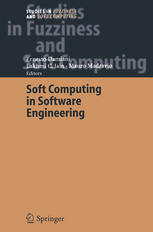

Most ebook files are in PDF format, so you can easily read them using various software such as Foxit Reader or directly on the Google Chrome browser.
Some ebook files are released by publishers in other formats such as .awz, .mobi, .epub, .fb2, etc. You may need to install specific software to read these formats on mobile/PC, such as Calibre.
Please read the tutorial at this link: https://ebookbell.com/faq
We offer FREE conversion to the popular formats you request; however, this may take some time. Therefore, right after payment, please email us, and we will try to provide the service as quickly as possible.
For some exceptional file formats or broken links (if any), please refrain from opening any disputes. Instead, email us first, and we will try to assist within a maximum of 6 hours.
EbookBell Team

4.8
14 reviewsThis book illustrates the impact of soft computing techniques on software engineering research and practices dealing with a range of novel methods reshaping the software development process. Specifically, it is shown how Software Engineering tasks such as reuse-oriented classification (e.g. components’ repositories), software diagnostic (e.g. bug detection and correction), effort prediction (e.g. project costs and time estimation), planning (e.g. project scheduling) and others can be appropriately handled by means of soft computing techniques. The book is a valuable reference for practitioners as well as an updated resource of ongoing interdisciplinary research in Soft Computing in Software Engineering.